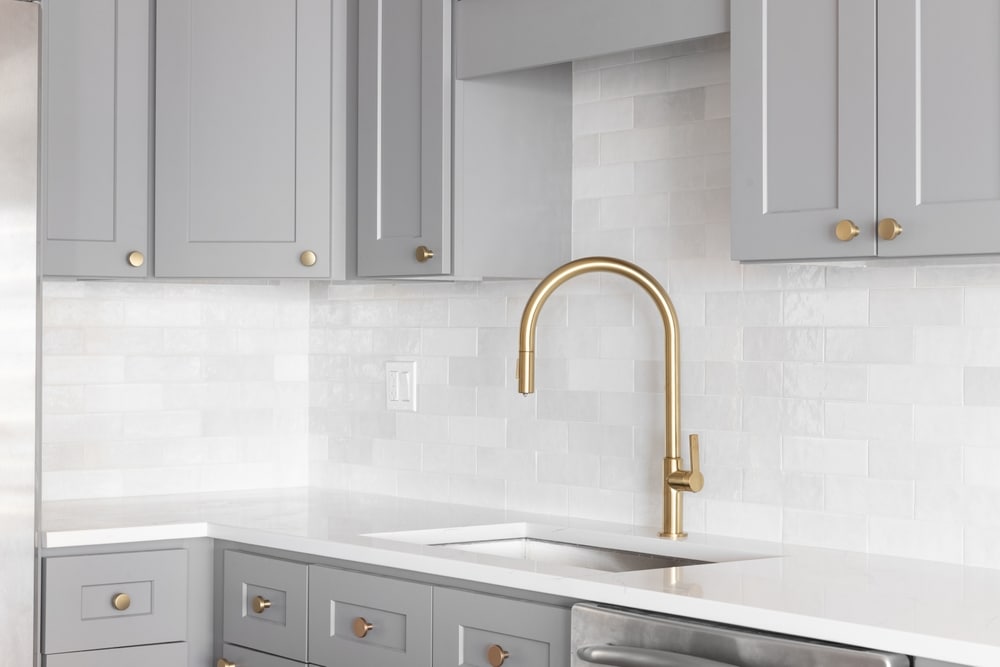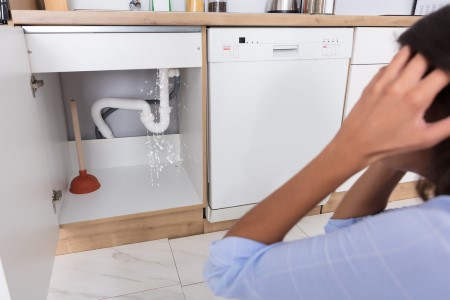What're your thoughts and feelings on Water Damage in Kitchen?

The kitchen area is the space where a lot of water task goes on. You can hardly do anything without making use of water in the kitchen area, from cooking, cleaning, and also doing the meals.
Thus, examining your kitchen area periodically is a requirement. This is because it has a greater possibility of getting water damage as a result of the home appliances you make use of there.
When defective, these devices that manage water could make your kitchen area messy and also influence the structure of your structure over time.
So, let's take a look at some causes of the water damage in the cooking area and what you need to watch out for.
Some Root Causes Of Water Damages in the Kitchen
These are a couple of sources of water damage in the kitchen area.
Faulty Drainpipe Pipeline
Drain pipes Pipes are essential parts of our homes, specifically in our kitchens and bathrooms. Nevertheless, they get malfunctioning by obtaining blocked, fractured, as well as ruptured. Or even worse, they can be incorrectly or freely connected; whichever the situation might be, it can be a severe trouble.
Faulty drainpipe pipelines can cause water damage as well as, as a result, trigger mold and mildew development and injure the look of your wall. It can likewise make the afflicted location look messy.
As a result, it is suggested always to inspect to make certain that all the pipes are in good condition as well as get an audio plumbing system to maintain and repair any type of concerns.
Faulty Kitchen Area Sink
The cooking area sink is a vital and many utilized part of the kitchen area. For this reason it is prone to water damage; problems such as obstructed pipelines, dripping pipelines, and faulty faucets.
These problems can be annoying, especially when one is busy in the kitchen. It doesn't just happen without giving a clue or an indication. Here are some signs to recognize when your sink is not all right
So, these are the major problems that can take place to your kitchen area sink. However, one means to stop this damage is by making certain that food bits do not get into the pipelines. You are likewise checking the faucets and also pipes and also guaranteeing that it is properly taken care of and in good condition.
Dripping Dishwasher
Dishwashing machines make life in the kitchen much easier. It is an optional cooking area appliance and also, when available, can be a resource of water damage. In addition, like other equipments, it will create faults in time, despite having maintenance.
One of the mistakes is leaking via the door or below the dish washer. These faults develop as a result of age, cracks, wrong use, loosened links to pipelines, etc.
Faults as a result of age come from continual usage. Because of this, the door leakages as a result of opening as well as shutting.
Also, faults from the wrong use might cause water damage by presenting cracks to it. It is advisable to adhere to the manual guide of the dish washer to stop this particular damage.
The leakages under the dish washer can come from cracks in the gasket, hose pipe, and also wrong or loose link to pipes or drains pipes.
This kind of leak typically goes unnoticed as well as can be there for a very long time. Due to the time framework, it can trigger as well as harm the flooring mold and mildew development.
Extra so, the longer the water remains, you will certainly see the warping of the floor where the dishwasher is. This is a good sign to watch out for when checking if your dishwashing machine leaks. Identifying and fixing this on time prevents serious water damage to your flooring.
Bottom Line
Looking out for damages in your cooking area can be entrusting yet essential. It makes your job there much easier as well as much safer.
Nevertheless, the causes noted above are only a few factors to think about, especially if your kitchen has a lot of devices.
Obtain a professional plumbing solution to come around and examine for any kind of damage and obtain them taken care of.
It makes your kitchen area wet and also untidy, especially when trickling from the pipelines. As well as if it is dripping from the tap, it leads to water wastefulness.
It is an optional kitchen area appliance and also, when offered, can be a resource of water damage. A lot more so, the longer the water stays, you will certainly observe the warping of the flooring where the dishwashing machine is. Spotting and also fixing this on time protects against severe water damage to your flooring.
WAYS TO PROTECT YOUR KITCHEN FROM WATER DAMAGE
The kitchen is one of the most significant rooms in your house, as it is a multipurpose room wherein you can do your cooking and cleaning. Nowadays, homeowners tend to ignore the problems under their sink or appliances because of their busy schedules. However, most household floods occur due to plumbing and appliance failure. One of the most common scenarios that cause water damage to your kitchen is when the dishwasher malfunctions and floods gallons of water.
Water damage in your kitchen can cause several problems, including cosmetic damage, mold growth, and even an unpleasant smell. Often, if you fail to neglect the problem, there are always consequences. This article will help you protect your kitchen from water damage.
Common Causes of Water damage in your kitchen
Pipe problems are the most common source of water leaks under your sink. If homeowners ignore this issue, it will burst and flood the kitchen. Dishwasher leaks can be a source of water damage in your kitchen. An old, broken, and defective dishwasher can cause leaks, damage to your floor, and even mold growth. Refrigerator leaks can cause water damage in your kitchen, as sometimes melted ice from defrosting can cause leaks. Furthermore, if your refrigerator has internal problems, it is very likely to cause water damage. Back-splash and sink caulking can cause discoloration and water damage to your countertop tiles. Ways to Protect Your Kitchen From Water Damage
Regular maintenance
The most important thing you can do to protect your kitchen from water damage is to inspect the sinks, drains, and pipes, as well as the kitchen appliances, regularly. As with the sink, check for missing or deteriorated caulk. Remove the old caulk and clean the area thoroughly and re-seal it with fresh silicone. Furthermore, sweep the drain regularly, empty the filter and dispose of the debris in the garbage, and inspect the supply lines and valve for cracks.
Check your appliances
Check the user’s manual for instruction and proper use of every water-related appliance installed in your kitchen. For the dishwasher, check this procedure to prevent the dishwasher from flooding your kitchen. Check the appliances that need water, such as the coffee maker, ice maker, and water cooler, as they can become the cause of water damage in your kitchen. You may call a professional to check and repair damaged appliances and professional restoration for water damage clean-up.
Garbage clean-up
Fats, oil, and grease are common in the kitchen. Pouring them down the drain can cause clogs and sewage backup, which may result in significant kitchen water damage. If your kitchen sink is clogged, use a solution of hot water, baking soda, and vinegar to unclog the fats and oils in the pipes. Also, make sure to throw out the debris in the trash and clean the sink properly using paper towels for greases and oil and soap or bleach solution for the sink itself.
Shut off your water line
Make sure to shut off your main water line, especially if you're away and having some flood issue. As mentioned, dishwasher leaks are one of the most common culprits of water damage in the kitchen. So, make sure to only use the dishwasher if someone is at home and available to attend in case a problem arises.
Furthermore, it is also important that every member of your household knows where the shut-off valves are located. So in case of an emergency, they can mitigate the damage by turning off the water source.
Install leak detectors
One of the best ways to catch water damage before it could even cause serious damage to your home or business is by installing a water or leak detector. A leak detector monitors the flow of water through a pipeline, can detect moisture in the air for molds, and tracks the water temperature. Also, it can shut off your water line in case of an emergency. Install leak detectors under the kitchen sink, near the dishwasher and refrigerator.
https://superiorrestore.com/7-ways-to-protect-your-kitchen-from-water-damage/

I ran across that article on How To Prevent Water Damage To Your Kitchen while doing a lookup on the internet. If you please set aside a second to promote this blog if you appreciated it. Many thanks for taking the time to read it.
Make An Appointment